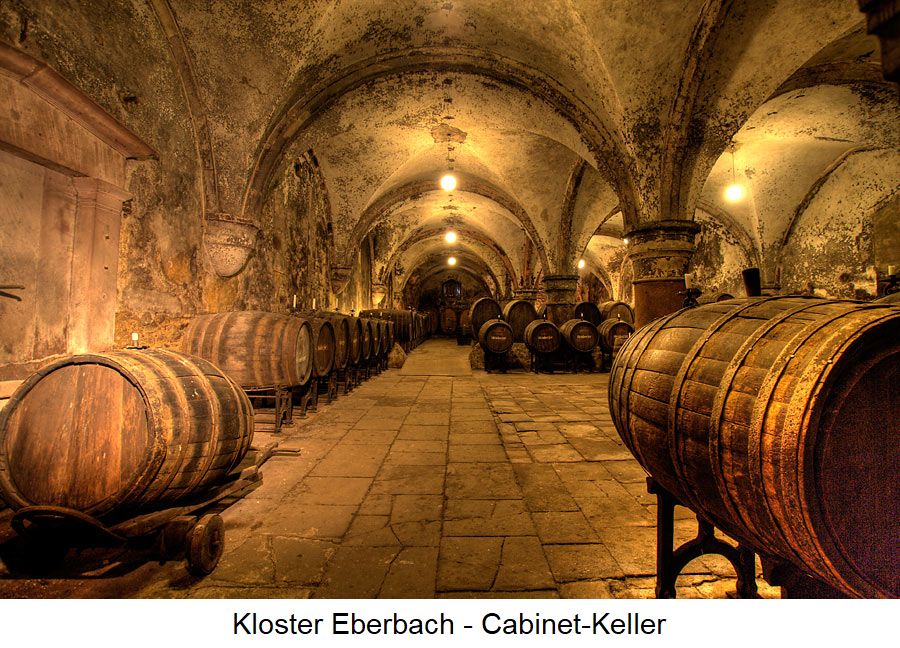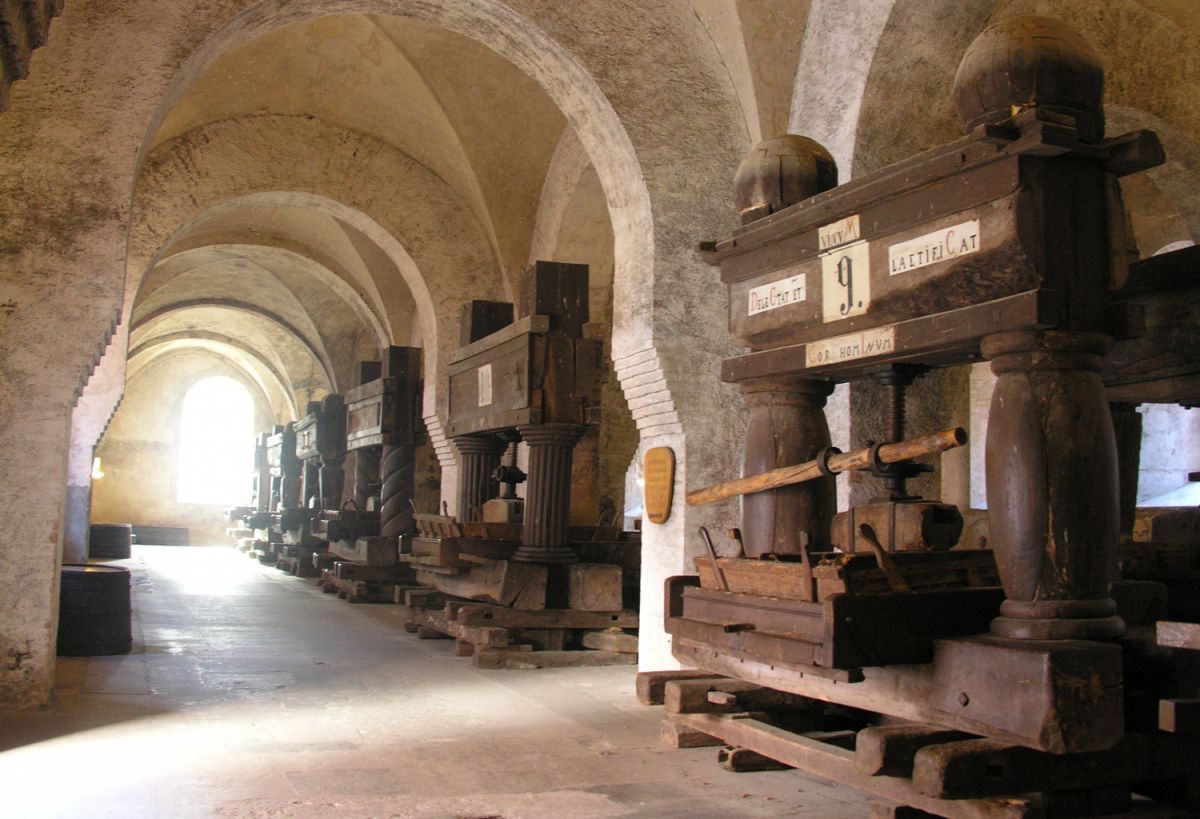Famous monastery of the Cistercian order in a wooded valley behind the municipality of Eltville-Hattenheim in the Rheingau. The first settlement at this location was made by Augustinian canons in 1116. In 1136, Cistercian monks from the mother monastery of Clairvaux (Champagne) colonised the area, which is considered the year the monastery was founded. It is said that they also brought Pinot Noir (Pinot Noir) and other varieties with them. This makes the monastery one of the oldest wine-growing operations in Germany. The first construction phase of the monastery took place between 1145 and 1160, the second from 1170 to 1186 and the extension of the monastery building in Steinbauwiese took place from 1190 to 1230. In the 12th century, the Taunus slopes were cleared and by the beginning of the 13th century, the vineyards had reached their current level. Around 1500, the Eberbach monastery owned 700 acres of vineyards; the monks sold more than half of the yield.
Cultivation in the Middle Ages
In the Middle Ages, red wine varieties were generally grown more than white wine varieties in all German wine-growing regions, often in a mixed set with different grape varieties in the vineyard. Pinot Noir in the Rheingau was first mentioned in a foundation in 1470, when the monks of Eberbach were given a "Clebroit-Wyngart" in the Hattenheim district (Klebrot is a synonym for Pinot Noir). In 1463, the monastery of St Jakob in Mainz demanded that its tenants remove all red vines and "put wysse an die Statt". The reason for this was that the Rheingau winegrowers, and in particular the Eberbach monastery, had a lively wine trade in Cologne. There, however, they were exposed to strong French competition. They therefore focussed mainly on the cultivation of white varieties, especially Riesling.

Largest wine-growing operation in the world
The Cistercian monks were highly professional winegrowers. The monastery and its branches on the Rhine developed into the most important wine-growing operation in the world, so to speak. The historic wine cellar, now known as the "Cabinet Cellar", was built in 1245. In 1712, the quality term Cabinet was used for the first time, based on a part of this cellar where the best wines were stored. From 1935 to 1938, the Romanesque state was restored and today Eberbach is one of the best-preserved medieval monastery complexes. In 1803, the estate was secularised in the course of the Napoleonic Wars and subsequently underwent several changes of ownership.

Hessian state wineries
Since 1945, the monastery and vineyards have been owned by the Hessian State Wine Estates. The most famous single vineyard is the Steinberg in Hattenheim. This was the monks' favourite vineyard and was already listed in the "Oculus Memorie" estate directory in 1211. Special wine rarities are stored in the monastery cellars. Every year, an auction organised by the VDP Rheingau (formerly Charta Rheingau) takes place here, at which the wines from the state vineyard and from noble neighbouring estates are auctioned off for charitable purposes, following the example of the Hospices de Beaune. The German Wine Academy regularly organises wine seminars here. In the winter of 1985/86, most of the interior shots for the film "The Name of the Rose" (starring Sean Connery), based on the bestseller by Umberto Eco, were filmed in Eberbach Monastery.
Cabinet cellar: by user Uli on wikivoyage shared, CC BY-SA 3.0, Link
Voices of our members

For my many years of work as an editor with a wine and culinary focus, I always like to inform myself about special questions at Wine lexicon. Spontaneous reading and following links often leads to exciting discoveries in the wide world of wine.
Dr. Christa Hanten
Fachjournalistin, Lektorin und Verkosterin, Wien